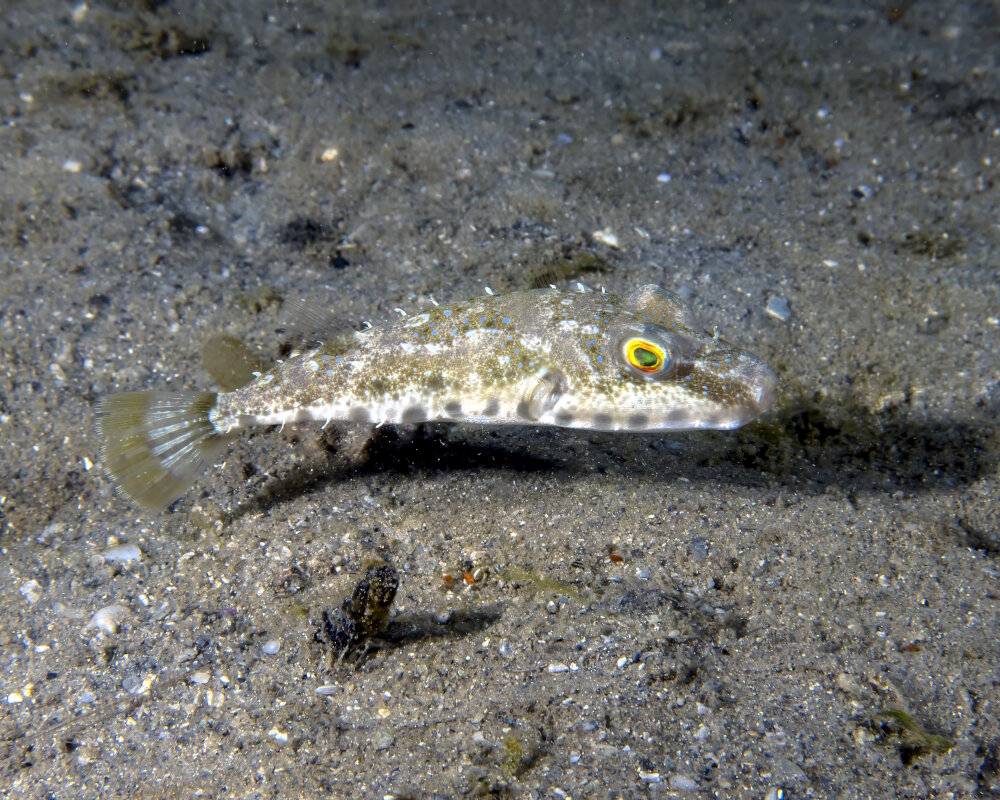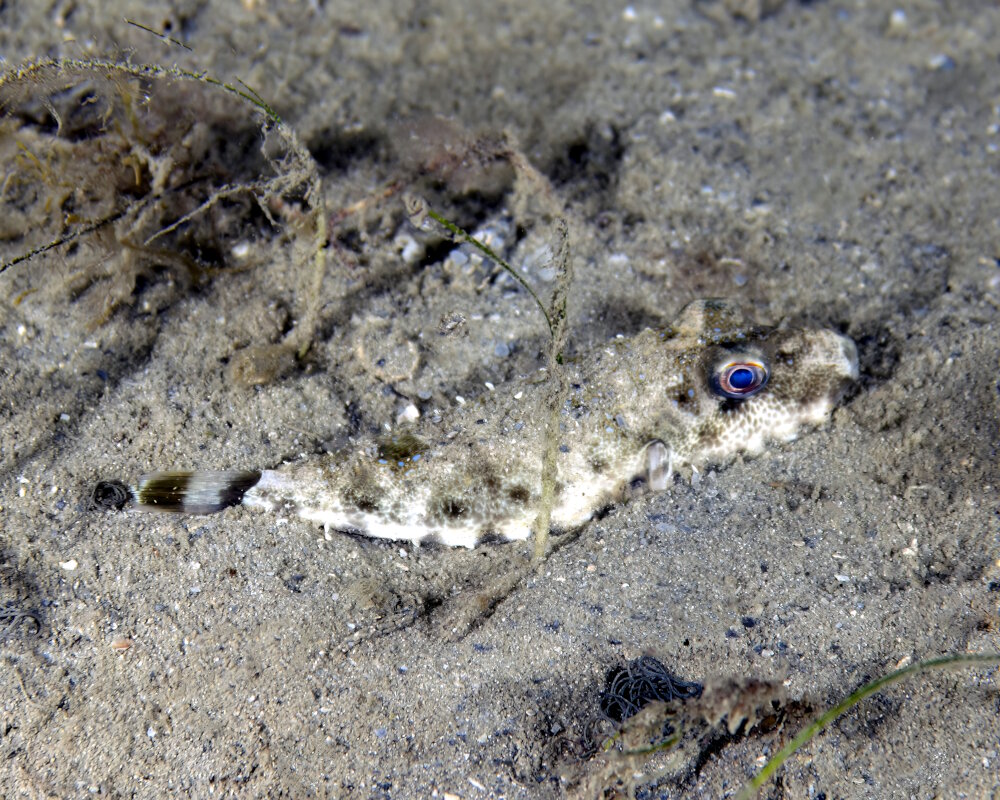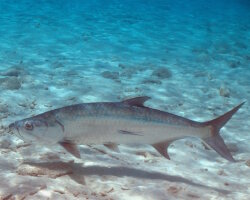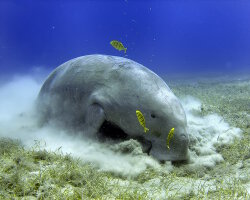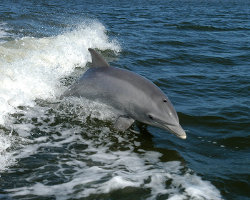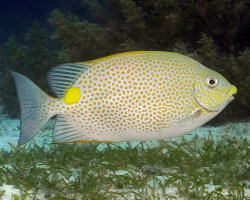Sealife guideThe bandtail pufferSphoeroides spengleri
Last updated on 12/07/2024 at 12:40 PM
Taxonomy
- Common name: Bandtail puffer
- French name: Poisson ballon à collier
- Spanish name: Botete collarete,corrotucho mataperros
- Scientific name: Sphoeroides spengleri (Bloch, 1785)
- Family name: Tetraodontidae
- Order name: Tetraodontiformes
- Class name: Actinopterygii
Description
The bandtail puffer is a small-sized fish, typically around four inches in length. Its stocky body has a whitish ventral side while its dorsal side is dark, ranging from greenish to brown, with darker or even whitish spots scattered across it. These features are separated by a whitish line superimposed with a line of dark spots, both located along its flanks.
The bandtail puffer has large, bulging eyes and a prominent mouth with thick visible teeth.
Geographic range
The bandtail puffer frequents the waters of the northwest Atlantic ocean, from Massachusetts in the north to Brazil in the south, via the Gulf of Mexico and the Caribbean sea.
The bandtail puffer is found particularly along the
Florida coast.
Habitat
The bandtail puffer lives close to or even on sandy bottoms or in seagrass beds where it easily blends in with its surroundings.
Diet
The bandtail puffer is an opportunistic carnivore that primarily feeds on small invertebrates it finds in sandy bottoms or seagrass beds, such as small
crustaceans like shrimp, crabs, or copepods, and small
mollusks like gastropods and bivalves, which it crushes with its powerful jaw equipped with thick teeth.
More rarely, it feeds on small fish.
Did you know ?
The bandtail puffer is listed as many other marine species within The
IUCN Red List of threatened species. The bandtail puffer appears in the
IUCN Red List since 2014 within the category Least Concern !
Within the same genus
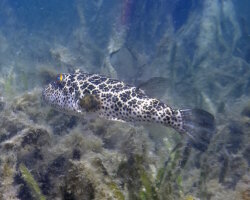
Checkered puffer
(Sphoeroides testudineus)
Within the same family

Blackspotted puffer
(Arothron nigropunctatus)
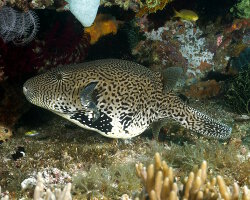
Guineafowl puffer
(Arothron meleagris)
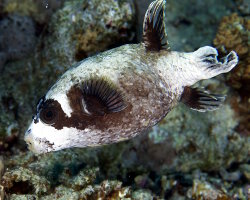
Masked puffer
(Arothron diadematus)

Narrow lined pufferfish
(Arothron manilensis)
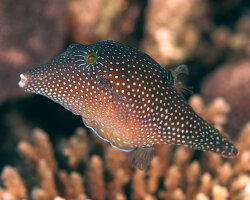
Pearl toby
(Canthigaster margaritata)

Starry pufferfish
(Arothron stellatus)

Valentin's sharpnose puffer
(Canthigaster valentini)
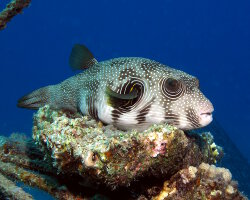
White-spotted puffer
(Arothron hispidus)
Discover also

Clown snake eel
(Ophichthus bonaparti)
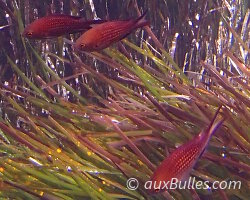
Damselfish
(Chromis chromis)

Ornate ghost pipefish
(Solenostomus paradoxus)
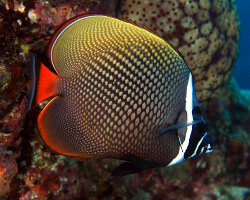
Redtail butterflyfish
(Chaetodon collare)
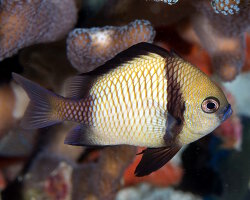
Reticulated damselfish
(Dascyllus reticulatus)
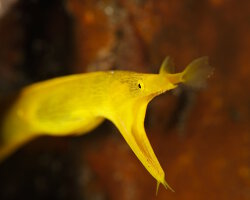
Ribbon eel
(Rhinomuraena quaesita)
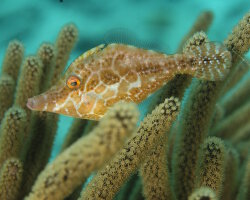
Slender filefish
(Monacanthus tuckeri)

Two eyed butterflyfish
(Coradion melanopus)
The marine species from northwestern Atlantic ocean
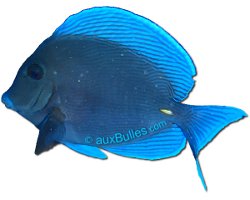
Blue tang surgeonfish
(Acanthurus coeruleus)
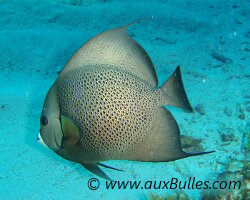
Gray angelfish
(Pomacanthus arcuatus)
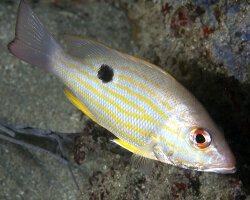
Lane snapper
(Lutjanus synagris)
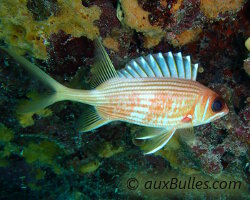
Longspine squirrelfish
(Holocentrus rufus)
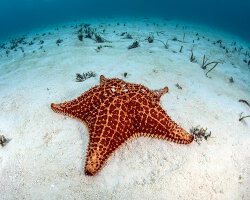
Red cushion sea star
(Oreaster reticulatus)
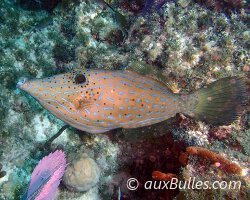
Scrawled filefish
(Aluterus scriptus)

Spanish hogfish
(Bodianus rufus)
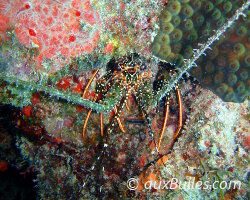
Spotted spiny lobster
(Panulirus guttatus)










